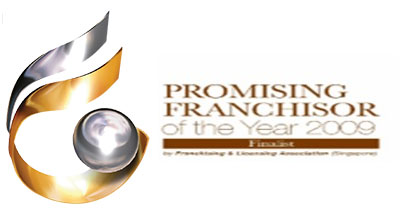- January 10, 2018
- Posted by: webmaster
- Category: Blog

Along with arithmetic skills, your child’s linguistic abilities are essential for excelling at school. With a strong command of language, your child can understand classes better, interact with teachers and other students effectively, and study more efficiently with improved comprehension that will help your child to absorb information and concepts easily.
What’s more, today’s math problems involves an increased level of linguistic comprehension. The better your child’s language abilities are, the easier (and more quickly) he/she will be able to comprehend and solve those tough questions.
Now, researchers have found a surprising way that you can improve your child’s language abilities – and it has nothing to do with picking up their English or Chinese textbooks.
Instead, you should engage them with maths.
The surprising relation between maths and language
In a recent study conducted by Purdue University, researchers found that preschool children who engage in mathematics activities (particularly, at home with their parents) improve not only their mathematical skills but also their general vocabulary. These findings were published in the Journal of Experimental Child Psychology, on 10 November 2017.
The study also found that while the introduction and learning of maths don’t usually happen at home, when parents include math concepts at home, as part of everyday life, their child’s linguistic abilities see a marked improvement.
It’s never too early (or late) to start
This means that it doesn’t matter if your child has (so far) only learnt maths in school, or in an enrichment centre – you can start “speaking maths” and playing maths games with your child now, and still reap the benefits of building a richer vocabulary.
Here are 4 simple yet effective ways you can integrate maths into your everyday conversations with your child.
- Beginner: Use numbers in everyday language
For very young children (who may not yet be used to numbers or calculations), simply using numbers in your everyday speech will be a great way to introduce them to maths.
While most parents simplify the language for young children, saying “We’re eating oranges today”, research has shown that including numerical details will be beneficial to your child’s mathematical and linguistic abilities. Therefore, saying, “We’re eating three oranges today. One for you, one for mummy, and one for daddy” will speed up your child’s mental development.
In this example, your young child would not only hear the word “three”, he/she would also be reminded that “one and one and one, make three”.
- Intermediate: Include addition, subtraction, multiplication and division in daily activities
The Purdue University study also found that a key reason why parents avoid including maths in everyday conversations with their child, is due to a phobia of the subject. When parents feel that they aren’t good at maths, they tend to avoid using it with their child. At other times, they avoid talking about maths as they may not wish to “scare their child” away from maths.
But don’t worry – if you can count, you can talk about maths with your child. And the more you use the concepts of addition, subtraction, multiplication and division in everyday life, the easier it will be for your child to understand the importance of mathematics – you may think of this as a way to get better results in school, but your child will quickly pick up on its real-world applications.
When playing board games with your child, use multiple dice to quickly improve his/her addition skills. Or use three dices – two of a certain colour, with a third of a different colour, indicating the number they would need to subtract from their total roll.
Also, when paying for food at a coffeeshop, let your child decide which note to use – then decide if the change they received is correct.
You can do the same when shopping. Ask your child how many bottles of Yakult each member of the family can have if you buy the 6-pack.
There are many, many ways that you can integrate numbers into your everyday life. Challenge yourself to find new, innovative ways that will challenge both your child’s mathematical skills, and their linguistic abilities. (In the example above, not too many children will understand what a “6-pack” of a product is – but yours will!)
- Advanced: What’s our shopping bill?
This game is lots of fun for advanced mental arithmetic whizzes who wish to really test their mental calculations, though it can be tailored to provide an easier challenge by removing the need for decimal points or reducing the number of items bought (and considering an answer based on estimations as a good result enriches them on the estimation concept).
Simply bring your child with you on your next trip to the supermarket. While shopping at the supermarket is already a fun activity for most children, this game makes it even better.
Before you place a new item into your shopping cart, pass it to your child and tell them the item’s price (or have them check out the price from the shelf themselves). Now, have them run the day’s shopping tab in their head. They don’t have to memorise each item’s price tag (this isn’t a memory game, after all) – they just need to know the current total, as each item is placed into the shopping cart.
At the end, let them surprise the cashier by saying the final amount out loud – long before it shows up on the cash register.
Letting them work within a budget gets them to practice on their subtraction arithmetic skills. Giving them a minimum requirement in their shopping baskets enforces them on their planning skills. (E.g. the basket must contain 2 bottles of milk)
Maths and language, an unbeatable “one-for-one” offer
Because maths and language are so closely interlinked, it’s one of the best “one for one” gifts that any parent can give their child.
Include maths in your everyday language and activities and if you’d like to take their maths-language skills to the next level – give them an advantage with mental arithmetic skills that they can use to excel in school, and life.
Start building your child’s mental arithmetic skills with CMA here. Or contact us so that our representatives can tell you more about our programmes for all ages!
Published on 10th January 2018
Awards













